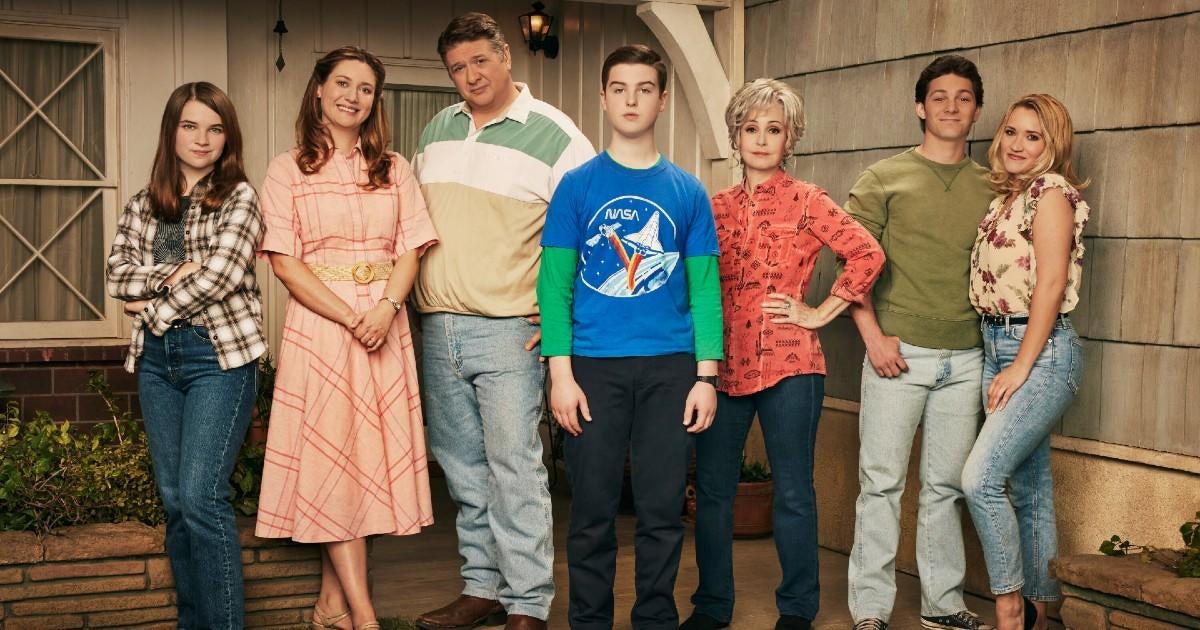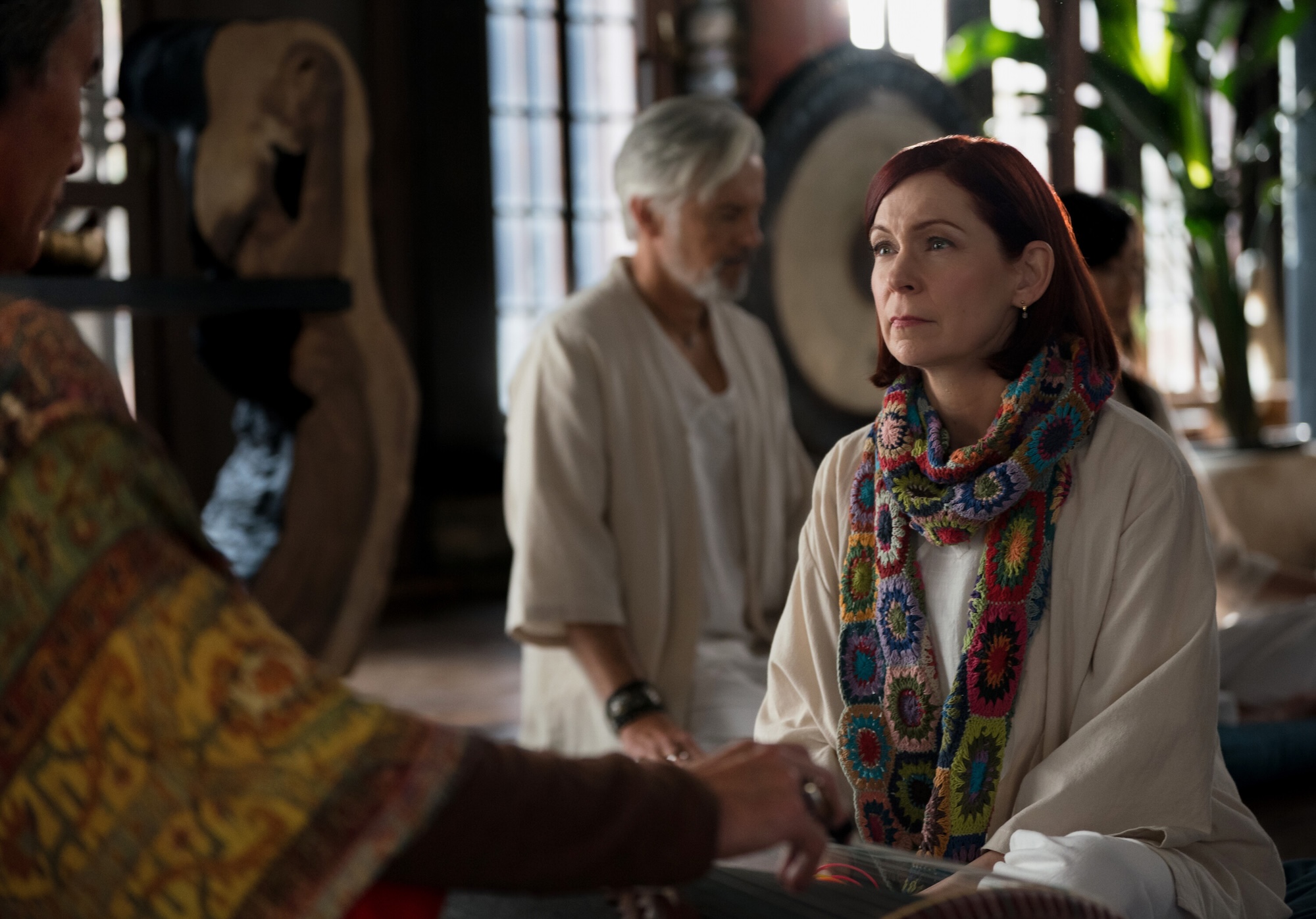Alicent and Rhaenyra Really Have to Stop Meeting Like This
No sooner had the finale of House of the Dragon’s second season aired than its viewers aired a common complaint: The episode lacked a big battle. I guess I must have seen a different finale from everyone else. I mean, what am I missing?
:no_upscale()/cdn.vox-cdn.com/uploads/chorus_asset/file/25560445/Tyland.png)
OK, so Lord Tywin/Tyman/Tyrod/Tyland vs. Admiral Lohar wasn’t quite the climactic confrontation most viewers had in mind. (Though Tyland himself likely climaxed off-screen, thanks to Admiral Lohar’s harem.) After the series’ principals spent the season putting the pieces in place for a knockdown, drag-out fight at Harrenhal, the audience was itching for a battle even more than Aemond and Daemon were. Yet the episode, and the season, ended with soldiers and sailors merely marching and sailing to war, not engaging in one. Daemon’s army may be ready “in two days’ time,” but in real life, the coming clash will probably be ready in two years’ time. No wonder Season 2’s big finish fell flat.
But even though Team Green and Team Black didn’t go head-to-head, they did come face-to-face, courtesy of a second secret rendezvous between everyone’s favorite frenemies and royal rivals, Alicent Hightower and Rhaenyra Targaryen. In Episode 3, Rhaenyra traveled to King’s Landing, sneaked into the Grand Sept, and accosted Alicent at prayer in a vain attempt to avert the onset of all-out hostilities. In the finale, the second half of the home-and-home plays out, as Alicent makes the reverse journey to Dragonstone to prevail upon Rhaenyra to end the war before both of their families—along with the rest of the realm—suffer further damage.
There’s a fascinating tension at the heart of these undercover visits. On the one hand, this season’s clandestine tête-à-têtes between queens produced some of the most riveting TV of the year: well-written, well-acted, consequential exchanges that lent a personal dimension to a conflict that otherwise could have had scant emotional stakes. On the other hand, these encounters are completely contrived. Both literally contrived by the prequel’s creators—these meetings don’t take place in Fire & Blood, the book House of the Dragon is based on—and figuratively contrived in the sense that their circumstances are extremely far-fetched, testing the audience’s suspension of disbelief. I don’t want Alicent and Rhaenyra to stop meeting, but I do wish they would—as the cliché goes—stop meeting like this.
For the most part, “The Queen Who Ever Was” epitomizes the improvements of the series’ second season. Season 1 was largely confined to King’s Landing and its environs, but the Season 2 finale takes us not only to nearby locations such as Dragonstone and the very hot tourist spot Sharp Point, but also north to the Vale, west to the Riverlands, and even off the continent, to Essos. While Season 1 concerned itself almost exclusively with Targaryens, Velaryons, Hightowers, and their highborn hangers-on, the finale featured numerous non-nobles, including the three dragonseeds at Dragonstone, Alys and Alyn, Mysaria, and the Triarchy rabble. Relatedly, while Season 1—and, for that matter, much of Season 2—was serious verging on somber, the finale is funny: In addition to the Lannister-Lohar high jinks, the episode also entertains us with Ulf’s etiquette infractions at Rhaenyra’s table and attempted traitor Alfred Broome’s visible gulp as Daemon bends the knee. As Ulf says, “A sense of humor would do you all good.”
The only significant failing of the finale was its unplanned placement at the end of the season, a pressure position that raised expectations for a massive set piece. Instead, we saw lots of fighting forces, but no non-mud-wrestling-related fights. Unless, of course, you count the verbal tangle between Alicent and Rhaenyra—a negotiation that has as much potential to end the Dance of the Dragons as the dragons do. Words are wind, but sometimes words end wars. And although the Dragonstone conference precedes the season-ending montage of armies and navies, Alicent and Rhaenyra get the last words of Season 2.
House of the Dragon’s alterations to the Alicent and Rhaenyra of Fire & Blood may be the most meaningful acts of adaptation that the spinoff’s creators undertook. In the book, Alicent is nine years older than Rhaenyra, but on-screen, they’re roughly the same age. Thus, whereas book Alicent and book Rhaenyra weren’t friends before the former became the latter’s stepmother, the teen TV versions of the characters were besties before Alicent started schtupping Rhaenyra’s dad and gave birth to three sons who threatened Rhaenyra’s status as heir. (This friendship fallout is very relatable; haven’t we all grown apart from former confidants for similar reasons?)
These crucial changes give viewers an entry to the Dance that’s predicated on poignant, understandable bad blood between two characters, rather than only the naked ambition of a large cast of confusingly named (and mostly odious) Targaryens. Rhaenyra is much more sympathetic on the screen than in the book. Even Alicent, the more obviously villainous of the pair to this point—“history will paint you the villain,” Rhaenyra tells her this week—has had a few of her book sins forgiven and has grown less contemptible as she’s relinquished her hold on (and aspiration to) power. The problem is, for the show to preserve this pairing as the lens through which viewers digest the Dance, Alicent and Rhaenyra need to see and talk to each other. In the book, their paths don’t cross during the events depicted in Dragon’s second season. Thus, showrunner Ryan Condal and Co. had to concoct ways to get them together—which was difficult to do plausibly, given that there’s a war on and neither of the two tends to stray far from their respective side’s stronghold.
Hence Rhaenyra’s easy-peasy visit to the belly of the beast in “The Burning Mill,” when she slipped past Alicent’s Kingsguard escort on her way into and out of the Sept. This flawless infil/exfil was one of a few notable breaches of King’s Landing security this season: Daemon made the trip too, to order a hit on one of Alicent’s offspring, and Alyn smuggled dozens of dragonseeds out of the closed city. This sequence required us to swallow both the breach of the capital and Alicent’s decision not to obviate the war—which she believed was inevitable—by alerting her guards as soon as she was out of the range of Rhaenyra’s knife.
Alicent’s jaunt to Dragonstone in “The Queen Who Ever Was” is, if anything, less credible. For one thing, it comes after the exodus of the dragonseeds, which prompts Aemond to order, “Let no vessel come or go from our harbor without our inspection.” In theory, this crackdown should make it tough for the dowager queen to decamp for Dragonstone on a whim. Admittedly, Maester Orwyle is (Or)wiley: We’ve already seen him help Alicent prevent an unwanted pregnancy and then help save her son’s life (only for Alicent to attempt to forfeit it in the finale). Plus, since her banishment from the Small Council, Alicent hasn’t exactly been at the top of Aemond’s mind; her absence might not be noticed, and even if she is found to be missing, after her recent sojourn in the Kingswood, she might be presumed to be glamping again.
However, one does not simply walk into Dragonstone (unless one is the identical twin of a Kingsguard member). You’re telling me that Alicent just strolls up to and into the blacks’ castle in the middle of the night, asks to see the queen, and gets escorted straight in? Rhaenyra’s shocked reaction when she lays eyes on Alicent suggests that she hasn’t even been told who her visitor is, which is extra strange. And which mysterious “protector” accompanies Alicent on this treasonous trip across Blackwater Bay? Surely not her camping companion, Rickard Thorne. Perhaps wisely, the series stays mum about these two expeditions’ details.
I get that this is Westeros, not a high-tech society where hoods and habits might not be enough to hide the identities of the realm’s most famous monarchs. I get that King’s Landing and Dragonstone aren’t far from each other. And I get that these royals have resources that enable them to evade defenses that might ensnare smallfolk. But the ease with which the main characters in this conflict cross enemy lines undercuts the gravity of the standoff between the two factions.
All of that said: Maybe this silliness was worth it. After all, which approach is preferable: adhere more strictly to realism and logic and not see Alicent and Rhaenyra together all season? Or beggar belief a bit and let Emma d’Arcy and Olivia Cooke, well, cook?
Wiping away Alicent’s audience with Rhaenyra in the finale would be a big loss. The contrast in the tenors of their two conversations, and the shifts in the participants’ positions and power dynamics—a transformation set in motion by Rhaenyra’s earlier revelation of Alicent’s misunderstanding, and Alicent’s dismissal of it—neatly illuminate the progression of the story over the five episodes between dialogues. As Condal says in the “Inside the Episode”: “You’ve seen the massive way that things have changed between meeting number one and meeting number two, and I think both of them have been through further trauma, and it’s brought them back around to a place where they’re wondering what the cost of all this is.”
When the first exchange took place, Alicent was still attending Small Council meetings and maintained some influence over the king. In the second, she’s lost any semblance of formal power and is all but an afterthought for the prince regent (though she does prevent Aemond from draggin’ Helaena to her dragon). In the interim, Rhaenyra has consolidated her strength. In the sept, Alicent tells Rhaenyra, “You have no army; your allies turn from you when they hear of your depravity.” But by the time they meet again, Rhaenyra has a huge army and allies galore—“the stronger hand,” as Alicent admits. In a symbolic move, Alicent must now be the one to sneak onto Rhaenyra’s turf, rather than the other way around. Team Black has home-field advantage, and the speakers have swapped places. “It’s too late, Rhaenyra,” Alicent said in Episode 3, a verdict Rhaenyra echoes in Episode 8: “It’s too late, Alicent.” (Another echo: Alicent’s “There’s been no mistake” morphs into her “I’ve been, I think, mistaken.”)
Yet even though Alicent has ostensibly lost her standing at court, she’s gained greater recognition of her own agency. In the first meeting, she claimed that she couldn’t do anything to stop the killing because her father was gone, Criston Cole was on the march, and Aemond was uncontrollable. In the second conference, Alicent is a deposed supplicant from the now-underdog greens—but she’s ceased to defer to the men she previously put her faith in: “my husband, my father, my lover, my son.” She no longer gives any effs, which gives her the fortitude to move metaphorical mountains and end an actual war.
Rhaenyra righteously (and deliciously) refuses to let Alicent off the hook for her transgressions: her sanctimoniousness, her role in usurping the throne, and her apparent belief that she can still wash her hands of it all. Rhaenyra doesn’t need Alicent’s assistance: as D’Arcy says in the “Inside the Episode,” “It’s funny to be offered a huge gift at the point where you think you already have what you need.” Of course, Rhaenyra still has something to gain: a bloodless victory. (Well, bloodless besides Aegon.) And Alicent, after a terrible calculation, decides that a son for a son is an appropriate price. She’ll sacrifice the spiritually and physically twisted, broken king to save Helaena, Jaehaera, and thousands more. (Her grandson, murdered by Daemon’s assassins, seems not to enter the equation; sorry, Jaehaerys.) Alicent has been nothing if not protective of her children, so this heartrending concession goes against her nature, which Rhaenyra acknowledges by remarking, “You are much changed.”
Alicent isn’t the only one. If there’s a theme to the finale, it’s the corrupting influence of proximity to power and the liberation of renouncing the throne. Daemon gives up his lifelong pursuit of the crown and finally appears to be at peace. Helaena confesses, “I was happier before I was queen” and longs to leave the capital. Alicent says, “I do not wish to rule, I wish to live.” And Aegon reaches the same conclusion, fleeing King’s Landing and effectively abdicating, if only temporarily.
And then there’s Rhaenyra, who dismisses the idea of absconding. When Alicent rejects the course that was set for her, casts off “the duty I put before all else,” and proclaims, “I am at last myself, with no ambition greater than to walk where I please and to breathe the open air,” Rhaenyra responds, “You speak as if from a distant dream.” But Rhaenyra is herself beholden to a distant dream: Aegon’s dream, the Song of Ice and Fire. “My part is here, whether I will or no,” she says. “It was decided for me long ago.” Decided by Viserys, yes, but before him by Aegon the Conqueror, and George R.R. Martin to boot.
Episode 8’s improbable but memorable meeting further frames this epic series as the story of Alicent and Rhaenyra. Yes, many dragons, and many men, may be going to war, but as Dragon executive producer Sara Hess, who wrote the Dragonstone dialogue, says on the “Inside the Episode,” “At the end of the day, it comes down to these two women trying to figure it out.” Fittingly, the finale ends with Alicent and Rhaenyra gazing out across the Blackwater, striking similar stances on opposite sides.
Condal says of the Dragonstone diplomacy, “The way it launches us into the third season and the unknown of what’s to come, it’s a tour de force.” This supposed tour de force is, perhaps, still a poor substitute for the finale the audience expected and that the creative team had likely laid out before the season was curtailed. But it does set the scene for next season—and for a Red Keep encounter between Alicent and Rhaenyra, which will, if all goes according to plan, require less subterfuge and less suspension of disbelief.
And as for the two stealthy, semi-ridiculous, indelible liaisons that defined Season 2? In the end, the ends justified the queens.







